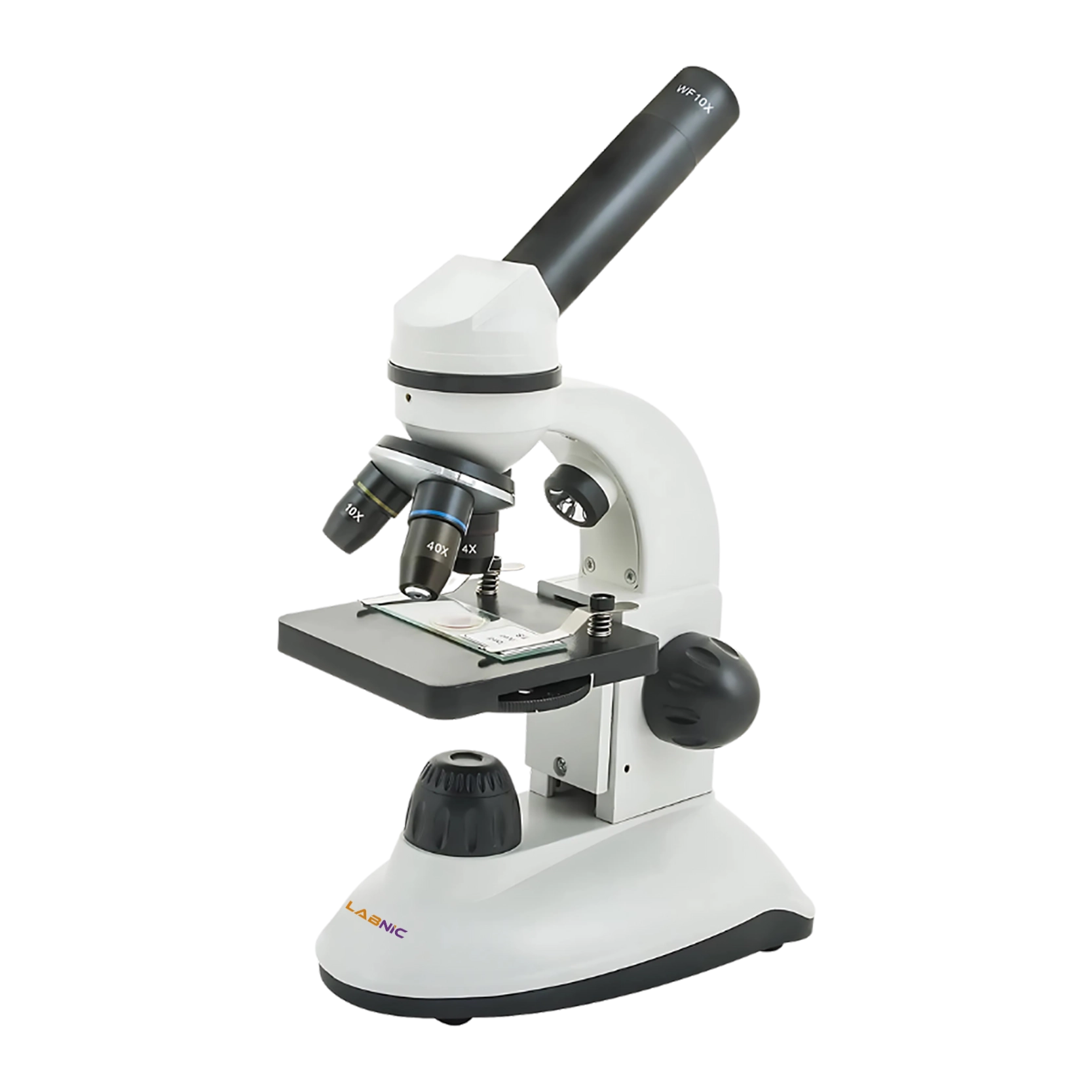
Biological Microscope LBN-BO121 consists of a monocular head type, an achromatic optical system, and an outward-curving nosepiece with three holes and an outward curvature. For different object viewing demands, it may offer transmit or incident lighting using twin LED lights. It has a simple stage with a clip and a single-lens condenser with a disc diaphragm. It is powered by an outlet and three AA batteries for cordless use. It has a 23.2mm eyepiece with coarse focusing and a 45° head angle inclination. It also has sliding clips and 90x90mm working spaces with one layer.
| Optical System | Achromatic |
| Standard Function | BF |
| Standard Magnification | 40X-400X |
| Head Type | Monocular |
| Head Inclination | 45 degree |
| Head Rotation | Head Rotate 360 degree |
| Eyepiece Diameter | 23.2mm |
| Nosepiece Features | Outward |
| Nosepiece Holes | 3 Holes |
| Objective Type | Achromatic |
| Objective | Black Color, 4X, 10X, 40X |
| Working Stage Type | 1 Layer +Slide clip |
| Working Stage Size | 90 × 90 mm |
| Focusing Features | Safety Stop Screw |
| Focusing Type | Coarse Only |
| Condenser Type | Single Lens, with 6 holes disc diaphragm |
| Light Source Features | Transmit & Reflect |
| Light Source Type | LED |
| Power Supply Type | Cordless Battery |
| Weight | 16Kg/15Kg |
| Dimensions (L × D × H) | 810 × 450 × 370 mm |
Biological Microscope can be used in biology labs at schools to allow students to examine bacteria, nanoparticles, small microorganisms, fluid precipitation, tissue culture, and biological slides.
Biological Microscope can be used in biology labs at schools to allow students to examine bacteria, nanoparticles, small microorganisms, fluid precipitation, tissue culture, and biological slides.
Most Frequently Asked Questions
1. What is a Biological Microscope used for?
Ans. A biological microscope is used for observing biological specimens such as cells, tissues, and microorganisms. It is widely used in scientific research, medical diagnostics, and educational labs.
2. What kind of magnification do these microscopes provide?
Ans. They offer high magnification using optical lenses, which ensures clear and detailed visualization of microscopic samples.
3. Do these microscopes have adjustable lighting?
Ans. Yes, they come with adjustable illumination to provide consistent lighting, enhancing visibility during observation of transparent or low-contrast samples.
4. Is it easy to operate biological microscope?
Ans. Yes, these microscopes are designed for user-friendly operation, making them suitable for both beginners and professionals.
5. What types of specimens can be observed with this microscope?
Ans. You can observe a wide range of specimens including blood cells, bacteria, plant tissues, microorganisms, and slides of organs or tissues for research and diagnostic purposes.
Biological Microscope LBN-BO121 consists of a monocular head type, an achromatic optical system, and an outward-curving nosepiece with three holes and an outward curvature. For different object viewing demands, it may offer transmit or incident lighting using twin LED lights. It has a simple stage with a clip and a single-lens condenser with a disc diaphragm. It is powered by an outlet and three AA batteries for cordless use. It has a 23.2mm eyepiece with coarse focusing and a 45° head angle inclination. It also has sliding clips and 90x90mm working spaces with one layer.